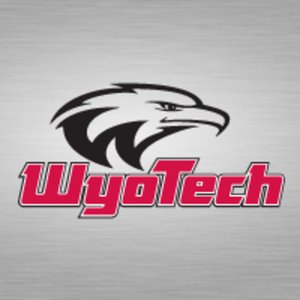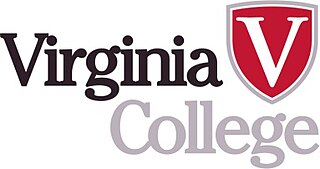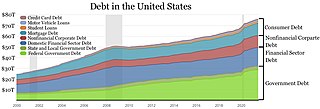DeVry University is a privately owned for-profit university with its headquarters in Naperville, Illinois. It was founded in 1931 by Herman A. DeVry and is accredited by the Higher Learning Commission. DeVry is predominantly an online educator but does have campuses in the United States.

ITT Technical Institute was a private for-profit technical institute with its headquarters in Carmel, Indiana and many campuses throughout the United States. Founded in 1969 and growing to 130 campuses in 38 states of the United States, ITT Tech was one of the largest for-profit educators in the US before it closed in 2016.

University of Phoenix (UoPX) is a private for-profit university headquartered in Phoenix, Arizona. Founded in 1976, the university confers certificates and degrees at the certificate, associate, bachelor's, master's, and doctoral degree levels. It is institutionally accredited by the Higher Learning Commission and has an open enrollment admissions policy for many undergraduate programs. The school is owned by Apollo Global Management and Vistria Group.
The University of Arizona Global Campus is a public online university affiliated with the University of Arizona. The university announced a deal to acquire Ashford University in 2020 and completed the deal in 2023.
The Art Institutes (AI) were a private for-profit system of art schools in the United States.

WyoTech, formerly known as Wyoming Technical Institute, is a for-profit, technical college founded in Laramie, Wyoming in 1966. WyoTech provides 3 core programs and 6 specialty programs that prepare students for careers as technicians in the automotive and diesel industry.

In the United States, higher education is an optional stage of formal learning following secondary education. It is also referred to as post-secondary education, third-stage, third-level, or tertiary education. It covers stages 5 to 8 on the International ISCED 2011 scale. It is delivered at 3,931 Title IV degree-granting institutions, known as colleges or universities. These may be public or private universities, research universities, liberal arts colleges, community colleges, or for-profit colleges. U.S. higher education is loosely regulated by the government and by several third-party organizations.
Corinthian Colleges, Inc. (CCi) was a for-profit post-secondary education company in North America. Its subsidiaries offered career-oriented diploma and degree programs in health care, business, criminal justice, transportation technology and maintenance, construction trades, and information technology. A remnant of the schools was owned by ECMC under the Altierus Career College brand until the last three campuses were closed in 2022.
Everest College was a system of colleges in the United States, and with Wyotech, made up Zenith Education. It was until 2015 a system of for-profit colleges in the United States and the Canadian province of Ontario, owned and operated by Corinthian Colleges, Inc. In 2021, former Everest students were made eligible for automatic student loan debt relief through the US Department of Education.

College tuition in the United States is the cost of higher education collected by educational institutions in the United States, and paid by individuals. It does not include the tuition covered through general taxes or from other government funds, or that which is paid from university endowment funds or gifts. Tuition for college has increased as the value, quality, and quantity of education have increased. Many feel that increases in cost have not been accompanied by increases in quality, and that administrative costs are excessive. The value of a college education has become a topic of national debate in the U.S.

The Higher Education Act of 1965 (HEA) was legislation signed into United States law on November 8, 1965, as part of President Lyndon Johnson's Great Society domestic agenda. Johnson chose Texas State University, his alma mater, as the signing site. The law was intended "to strengthen the educational resources of our colleges and universities and to provide financial assistance for students in postsecondary and higher education". It increased federal money given to universities, created scholarships, gave low-interest loans for students, and established a National Teachers Corps. The "financial assistance for students" is covered in Title IV of the HEA.

Berkeley College is a private for-profit college with campuses in New York City, New Jersey, and online. It was founded in 1931 and offers undergraduate and graduate degrees and certificate programs. Berkeley College is accredited by the Middle States Commission on Higher Education. Its administrative headquarters are in Little Falls, New Jersey.
Argosy University was a system of for-profit colleges owned by Dream Center Education Holdings (DCEH), LLC and Education Management Corporation.

Virginia College was a private for-profit college located primarily in the southeastern United States. It offered classes, certificates, diplomas, and degrees related to specific professions such as health sciences, information technology, business, office management, and criminal justice. It also offered online degree programs.
Proprietary colleges are for-profit colleges and universities generally operated by their owners, investors, or shareholders in a manner prioritizing shareholder primacy as opposed to education provided by non-profit institution that prioritize students as project stakeholders.

In the United States, student loans are a form of financial aid intended to help students access higher education. In 2018, 70 percent of higher education graduates had used loans to cover some or all of their expenses. With notable exceptions, student loans must be repaid, in contrast to other forms of financial aid such as scholarships, which are not repaid, and grants, which rarely have to be repaid. Student loans may be discharged through bankruptcy, but this is difficult. Research shows that access to student loans increases credit-constrained students' degree completion, later-life earnings, and student loan repayment while having no impact on overall debt.

Brightwood College, formerly Kaplan College, was a system of for-profit colleges in the United States, owned and operated by Education Corporation of America. Main qualifications offered included health, business, criminal justice, information technology, nursing and professional training (trades) programs. On December 5, 2018, Brightwood's parent company, Education Corporation of America, announced unexpectedly via an email that all of its schools would be closing in two business days. Staff were terminated without legally required notice.
Education Management Corporation (EDMC) was a Pittsburgh, Pennsylvania-based operator of for-profit post-secondary educational institutions in the United States and Canada. The company was founded in 1962. At its peak in 2011, Education Management Corporation operated 110 schools through its higher education divisions: Argosy University, The Art Institutes, Brown Mackie College, and South University, and enrolled 158,300 students.
For-profit higher education in the United States refers to the commercialization and privatization of American higher education institutions. For-profit colleges have been the most recognizable for-profit institutions, and more recently with online program managers, but commercialization has been a part of US higher education for centuries. Privatization of public institutions has been increasing since at least the 1980s.
For-profit colleges, also known as proprietary colleges, are post-secondary schools that rely on investors, and survive by making a profit. They include for-profit vocational and technical schools, career colleges, and predominantly online universities. For-profit colleges have frequently offered career-oriented curricula including culinary arts, business and technology, and health care. These institutions have a long history in the US, and grew rapidly from 1972 to 2009. The growth of for-profit education has been fueled by government funding as well as corporate investment, including private equity.









